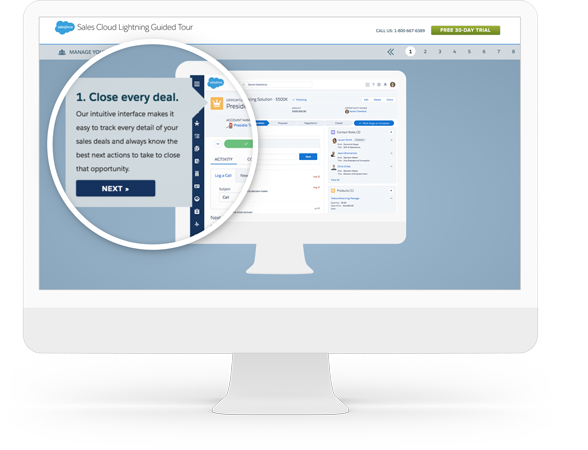crm system benefits
Is Your CRM Program Living up to its Potential? 8 Surprising CRM System Benefits

Find out what a CRM can do for you

One of the ways that CRM increases sales is by identifying potential new sales opportunities. For example, Joe Dysart reports in the ABA Journal (2014) that a law firm netted an unanticipated consulting fee of 50,000 pounds because attorneys were able to make the connection between a client interested in investing in a company and another attorney at the law firm who happened to have a deep knowledge of the proposed investment. CRM systems allow similar connections to be made and opportunities to become apparent.
CRM systems allow relationships with potential customers to be developed until the time comes when they’re ready to purchase. This is important, seeing as long-term leads represent up to 77 percent of potential sales. Without a proven system of follow-up, most sales reps ignore long-term leads.
Other benefits of CRM systems are seen throughout the management and organization of a company. With CRM data, companies can track responses to campaigns and align sales and marketing tasks in order to be more effective. CRM systems also offer insight into process improvement, and allow for forecasting, purchasing, and production scheduling. In short, CRM systems benefit the company by giving information for accurate decision making.
Most businesses, non-profits, government organizations and even schools recognize the need for a CRM. Recent statistics estimate that over 90 percent of companies with 11 or more employees use CRM. The basic benefits of CRM programs are enticing enough, most users don’t realize the many other, more advanced benefits of CRM programs.
The 8 Surprising Benefits of a CRM System
1. Save Time
If your company is just now implementing or changing CRM systems, it may seem like CRM is more time consuming than the last system. Many employees may complain about the seeming increase in workload and data entry. What seems like a lot of time spent entering data on CRM, however, will prove to be a monumental time-saver in the not-so-distant future. Cloud CRM systems are especially productive because field reps can update their CRM on-the-go from any mobile device. Salesforce Cloud CRM users see a 40 percent increase in their sales productivity. Sending emails and viewing LinkedIn profiles directly from your CRM are some time-saving features of Salesforce Lightning, for example.
2. Motivate Employees
Many CRM systems allow users to set and track goals. Advanced graphics in CRM programs like Salesforce tell the story of the sales through the pipeline. These features allow users to see the percentage of goals met, determine where tasks need to be concentrated, and predict future results.
3. Identify Trends as They Happen
Any sales data can show a broad picture of sales and product trends. Usually, however, those trends don’t become apparent until reports are run at the end of a period. With CRM data, your company can see subtle shifts in the marketplace. Perhaps a certain region or demographic is showing a product preference? CRM lets you see these emerging trends and shift sales and marketing messages to capture the sales. Cloud CRM applications are particularly helpful in spotting trends because the data is available to any device with an internet connection.
4. Calculate Commission
When asked, most accounting departments will admit they calculate sales reps’ compensation with accounting software or on a spreadsheet. However, many CRM programs can easily calculate compensation. In CRM Magazine (2010) Jim Dickie asserts that companies using CRM for customers should also be using CRM to help keep track of sales reps’ compensation packages. Dickie, a partner at CSO Insights, notes that most firms don’t use their CRM for compensation but should: “If compensation plans are truly meant to drive selling behavior, then we need to upgrade the systems we use to manage these plans. Because of this, I expect to see many more companies migrate their compensation management tasks onto CRM applications,” explains Dickie (2).
Salesforce offers compensation management apps from its AppExchange (a marketplace of apps that easily integrate into your CRM platform) such as the “Commissions Calculator” app. Use of this app results in time savings and higher productivity for both sales and accounting departments.
5. Create Business Strategy
Smart business leaders realize that CRM is not only for the sales department, but for the entire company. Because CRM tracks so many tasks crucial to business operations, CRM should be at the core of every decision. Marketing, scheduling, inventory, human resources, production, forecasting and accounting are all dependent on information from the system. As businesses learn to garner information from their CRM system, they find their business making better, data-driven decisions.
6. Improve Internal Processes
CRM systems can to ensure orders are delivered to the customer as promised. Denis Pombriant, CRM analyst and author of The Subscription Economy, explains that CRM-based processes aid in exceptional delivery of products. “Modern CRM, which uses analytics and a decent model of customer behavior, can spot exceptions…[and] gives a vendor the ability to zero in on customers who really need help and at the same time helps manage scarce resources,” explains Pombriant (3).
This process leads to delivery of what the customer needs. Pombriant continue to explain that following clear processes informed by a CRM tool leads to sales goals without undue complications: “The power of a process orientation is that it leads naturally to the [sale], but in an orderly way that keeps the customer involved and prevents skipping steps that can later come back to haunt.” Helping to define processes is an important benefit of CRM systems.
7. Identify At-Risk Customers
Because most sales come from current customers, it’s important to track each customer and their history so your company exceeds their expectations. A CRM tool can help identify customers who have called with several complaints, placed fewer orders than expected or let more time than usual lapse between orders---all red-flags for dissatisfied customers. By proactively contacting these customers, relationships can be strengthened and potential problems resolved.
8. Create a Customer-Centric Focus

The name “customer relationship management” should say it all. With CRM software systems, customer information, orders, conversations, and help desk requests can be logged. When talking with a customer, you can access all this information so a conversation with a customer can go smoothly (and pick up where you last left off). Having all the information in the same place allows company representatives to focus on the customer, rather than trying to recall facts and interactions.
CRM systems, when used well, allow you to more easily focus your business on the customer. By organizing customer data and presenting it in a way that allows for action, CRMs are a necessity for modern sales teams.
Sales, marketing, purchasing, inventory and customer service should all operate with the customer as the center of their processes. This transformative philosophy will ensure your company takes care of who matters most in your business. The most important benefit of a CRM system is to remind you every time you log on to the CRM program that it’s the customer who’s at the heart of your business.

